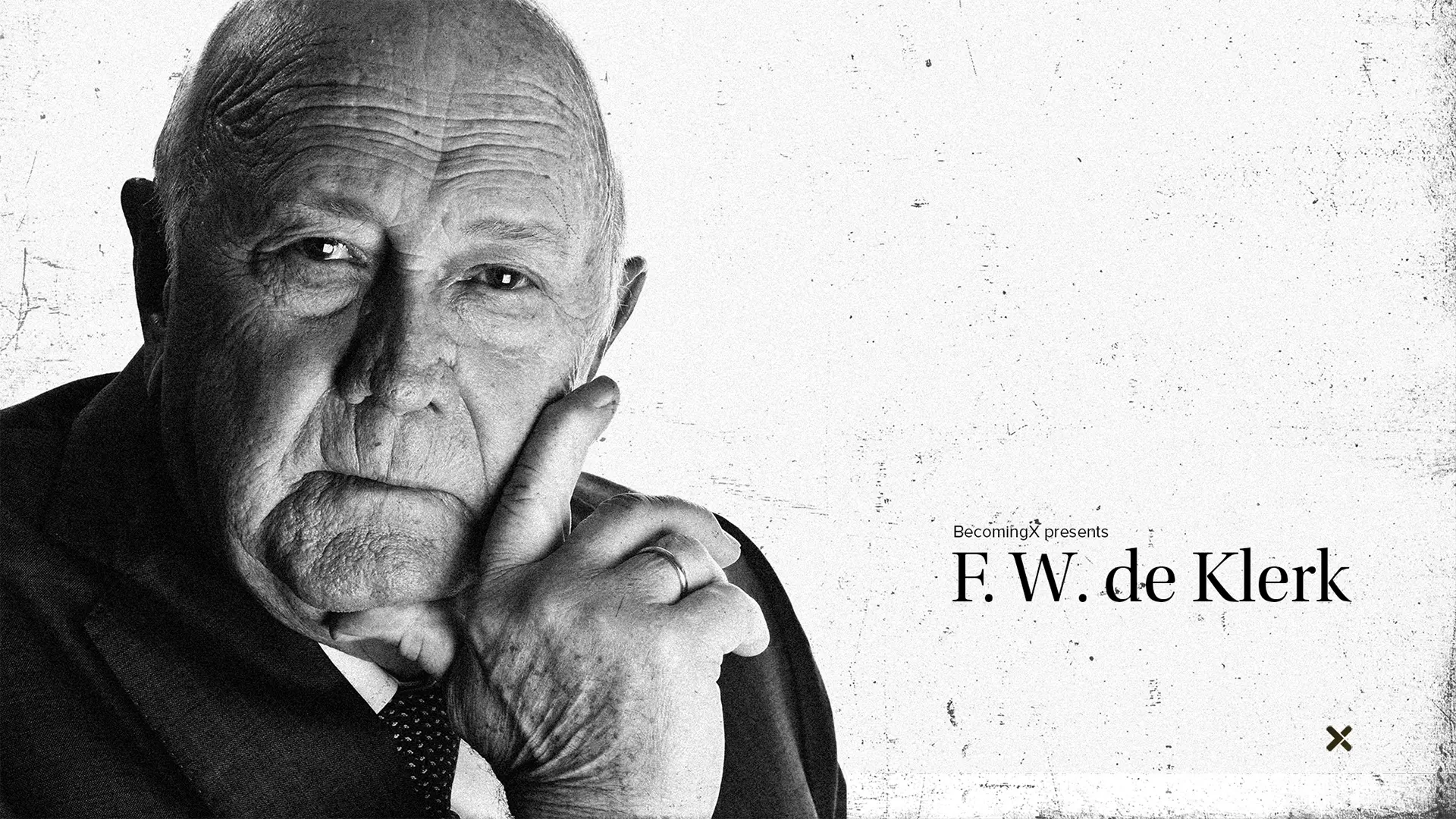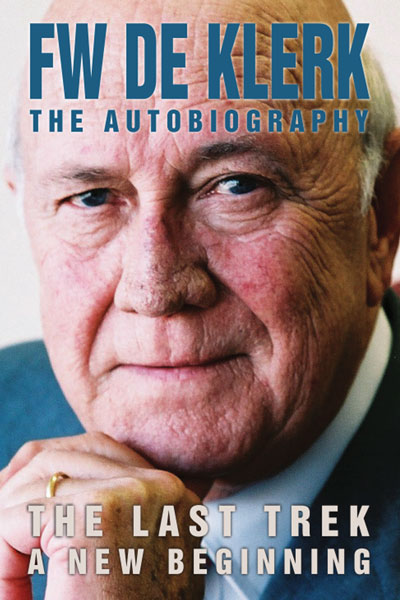

Indefensible. Morally wrong. In February 1990, then President of South Africa F.W. de Klerk made a historic speech calling for an end to the apartheid regime. Alongside Nelson Mandela he lay the foundations for a new democratic South Africa and together they were awarded the Nobel Peace Prize. But de Klerk didn’t do this for recognition. For fame or power. He did it because he recognised what was horrifically wrong and was prepared to make the 180 degrees turn to right it.
De Klerk never wanted to be a “professional politician”. In fact, his father taught him there was no such thing. He had to make a success of himself in his chosen profession first. A lawyer. And so, he did just that, learning and growing as a person. In the years of reform, he recognised his own past mistakes. He made no excuses and gave what he acknowledged was an unqualified apology for the pain and hurt the apartheid regime had caused.
Bringing about change, de Klerk emphasised the importance of mutual respect, listening, and facing problems head on. For he never saw problems as unapproachable, unmoveable, or unsolvable. To him problems were challenges to be accepted and he approached them as such.
F.W. de Klerk sadly passed on 11th November 2021, but his legacy lives on. His actions changed the lives of innumerable numbers of people for the better, and he showed what can be achieved with respect, hard work, and by adhering to sound principles of humanity.
Importantly, he taught us not to underestimate ourselves and to look out for each other.
“All of us have potential. And the great task and challenge in this world is to help, through creation of opportunities, to help each individual to achieve his or her full potential.”
F.W. de Klerk – video transcript
All of us have potential. And the great task and challenge in this world is to help, through creation of opportunities, to help each individual to achieve his or her full potential.
My mother made me believe I had great potential. There was a culture of being very responsible, of being society-orientated, of not only working for a salary, but also being of service to the community. That is the type of atmosphere in which I grew up. From the time that I was young, I was anxious to sort of get into politics quite soon. My father called me and he gave me the best advice that I've ever been given. He said to me, "There is no such thing as really a professional politician. First, go and make a success of the profession you have chosen," which in my case was a lawyer. "So that one day, if you enter politics you will never have to say, when you're asked what do you do? You will never have to say, I'm a politician."
I'm often confronted by the fact, which is true, that in my younger days, and even as a young MP, I defended apartheid. I believed that we could, through separate development, bring justice. My father entered politics at the age of about 45. I became involved in major reforms. We scrapped about 100 apartheid laws. Laws that he as a minister has put on the statute. We had reached a point where we had to admit that separate development has failed to bring justice, and that therefore it was morally indefensible and that therefore we should follow our conscience. And this is what we did in the years of reform, and especially what we did when I became President. And I'm sure my father would have understood.
Having admitted to ourselves that apartheid was morally wrong, that it was morally indefensible. Having reached the stage where I was prepared, as I did later on, to give an unqualified apology for the pain and the hurt that apartheid has caused. I came to the conclusion that we must make 180 degree turn.
I met Mr. Mandela for the first time in December '89. He was brought to my office, which later became his office, from the Victor Verster prison, where he was being housed. That first meeting, we didn't discuss anything of real substance. We were feeling each other out. We listened to each other, we didn't interrupt each other. Somehow or another there was a feeling of mutual respect. We never lost that feeling. There were moments when the country could have exploded into big and serious political violence. This mutual respect which we had for each other quite often saved the day.
I never despaired about a problem. I always tried to analyse, why is this a problem? Where does this problem come from? In the spirit of, I'm going to find either a way around this problem or a solution for this problem. Problems are challenges to be accepted.
I delivered the speech of the 2nd of February, 1990, which changed the face of South Africa forever.
Don't underestimate your own potential. You can go a long way, provided you work hard, provided that you adhere to solid and sound principles of humanity, of respect for each other, of neighbourly love. You will reach your full potential.
END CARD
F.W. de Klerk became South Africa’s President in 1989.
In 1990, he played an integral role in facilitating Nelson Mandela’s release from prison.
He was jointly awarded the Nobel Peace Prize with Nelson Mandela in 1993 for their role in ending the apartheid regime and for laying the foundations of a new democratic South Africa.
 The Last Trek: A New Beginning
The Last Trek: A New Beginning